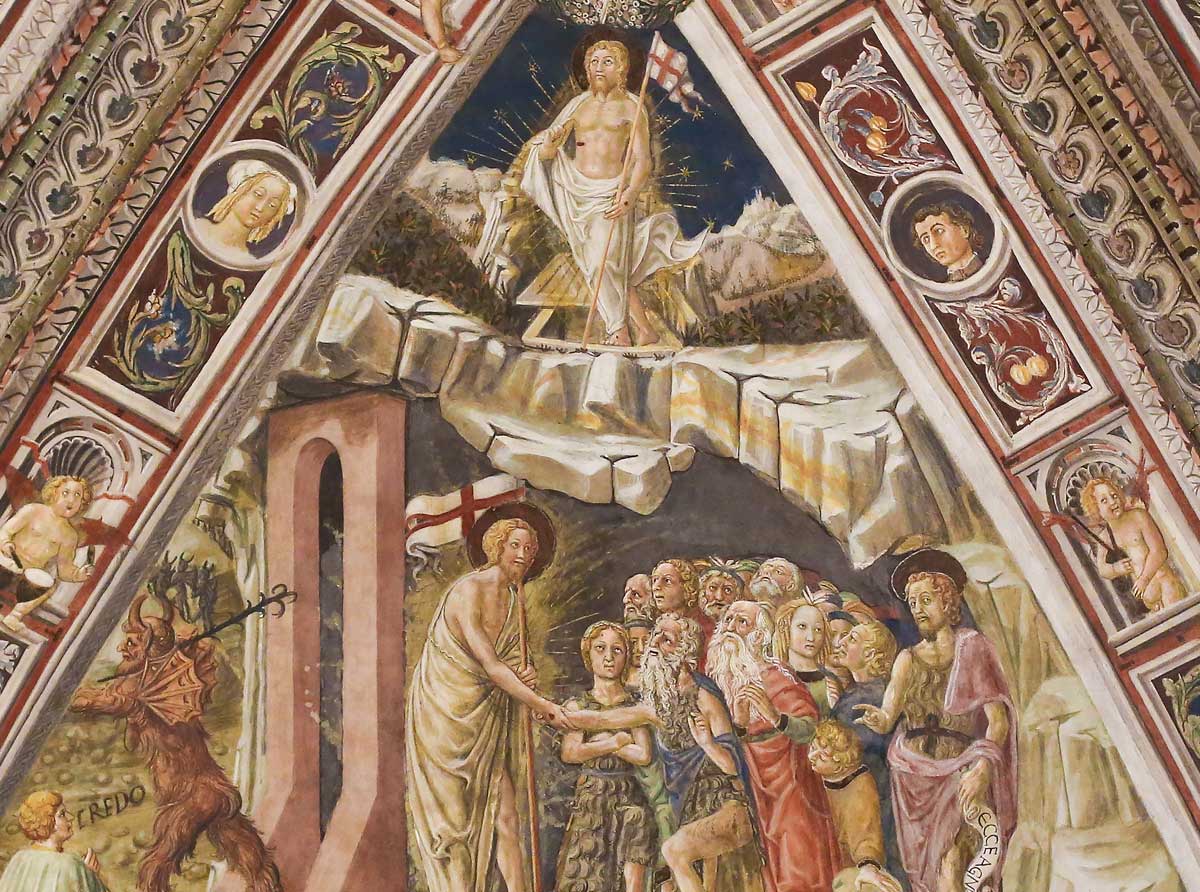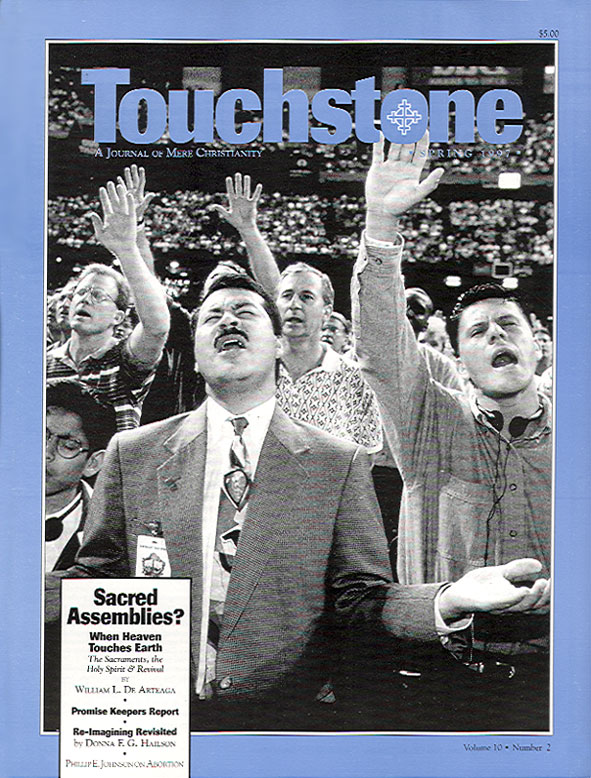First Things & the Mandate of Heaven
Last November’s issue of First Things exposed a unhappy rift between American conservatives. The controversy was triggered by the editors’ question of whether the malignant reconstitution of the United States federal government by its courts indicates “we have reached or are reaching the point where conscientious citizens can no longer give moral assent to the existing regime… Perhaps the United States, for long the primary bearer of the democratic idea, has itself betrayed that idea and become something else.” Raising the question in this way caused the departure of several notable members of First Things’s editorial board.
In December 30th’s New Republic, Jacob Heilbrunn characterized the division as between mostly Jewish “neocons” and mostly Christian “theocons.” The neocons, said Heilbrunn, “believe that America is special because it was founded on an idea—the rights of man embodied in the Declaration of Independence—not in ethnic or religious affiliations. The theocons . . . believe that idea is Christianity . . . God’s law transcends the arbitrary and tyrannical decrees of what the theocons increasingly refer to as an American judicial ‘regime’.”
While neocons and theocons by Heilbrunn’s definition no doubt exist, the disagreement here appears to be between people who are closer to each other than the factions he identifies. Both sets of conservatives believe in natural law. They may even go so far together as believing that Reason, which is the highest expression of nature, seeks its ground in religion, which ultimately must dictate its view of nature and its laws, political and otherwise. (While Thomas Aquinas would agree, there is nothing distinctively Christian about this idea.) As such, religious belief and activity must appear in the public square. The disagreement is less between conservatives who think the square should be maintained as far as possible on non-religious grounds and those who don’t, as between the First Things editors and those who think they went too far in questioning the legitimacy of the government in the sensational way they did.
I was struck by Mary Ann Glendon’s observation in the January issue of First Things that “the courts could never have carried off [their] power grab were it not for pathology in other parts of the body politic”—that is, in American culture as a whole—for which I would say the re-election of Mr. Clinton stands as the most prominent symbol. We have a culture sick unto death, and no good reason to believe we shall be spared the termination towards which our loss of vigor and integrity inclines. Meditation on the unhopeful conclusion of Robert Bork’s Slouching Towards Gomorrah has reinforced my conviction that dying cultures are not saved by turning inward upon their constitutional resources, the exhaustion of which has fostered the decline in the first place. Religion represents corrective power from without, something that stands over and can move culture in a way politics cannot, and that, on occasion, has made cultural recovery possible.
The mass of degenerations that make a dying culture cannot be effectively reversed by politics, by the reassertion of the constitution of the polis itself—only by the dangerous expedient of religion. If there are those among the natural constituency of First Things who would like to keep its voice subdued in the public square, Fr. Neuhaus and his colleagues are right when they counter that God’s approval, for anyone who believes in God, is the deepest and most necessary premise for a government’s legitimacy. Certainly among Christians and Jews there has always been a super-constitutional place from which the king may be questioned, and an equally long tradition on both sides of questioning him when necessary. To those who don’t like the way it was done here, I must say I can think of no offhanded or gentle way to do it when Herod is king. The terrible noise we are hearing is not simply the growling and snapping of First Things. It is the voice from Ramah, Rachel weeping for her children, for they—thanks to the American res publica—are not.
Reprinted with permission from The Religion & Society Report (May 1997).
—S. M. Hutchens
S. M. Hutchens is a senior editor and longtime writer for Touchstone.
subscription options
Order
Print/Online Subscription

Get six issues (one year) of Touchstone PLUS full online access including pdf downloads for only $39.95. That's only $3.34 per month!
Order
Online Only
Subscription

Get a one-year full-access subscription to the Touchstone online archives for only $19.95. That's only $1.66 per month!
bulk subscriptions
Order Touchstone subscriptions in bulk and save $10 per sub! Each subscription includes 6 issues of Touchstone plus full online access to touchstonemag.com—including archives, videos, and pdf downloads of recent issues for only $29.95 each! Great for churches or study groups.
Transactions will be processed on a secure server.
more from the online archives

28.2—March/April 2015
Man, Woman & the Mystery of Christ
An Evangelical Protestant Perspective by Russell D. Moore

14.6—July/August 2001
The Transformed Relics of the Fall
on the Fulfillment of History in Christ by Patrick Henry Reardon
calling all readers
Please Donate
"There are magazines worth reading but few worth saving . . . Touchstone is just such a magazine."
—Alice von Hildebrand
"Here we do not concede one square millimeter of territory to falsehood, folly, contemporary sentimentality, or fashion. We speak the truth, and let God be our judge. . . . Touchstone is the one committedly Christian conservative journal."
—Anthony Esolen, Touchstone senior editor








